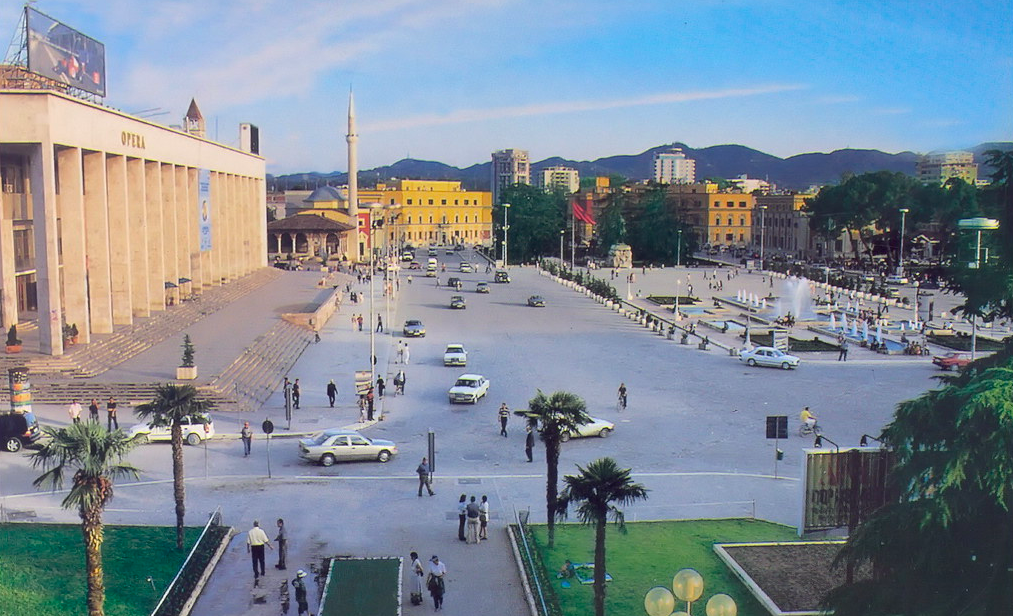Transparency International’s (TI) annual Corruption Perceptions Index was published on 23 January. The UK comes out pretty well. But, as the CSC’s Dan Hough notes, there’s no grounds for complacency.
Every year in January Transparency International (TI) gets the world talking about corruption. Not that corruption isn’t discussed at other times of the year, but TI’s Corruption Perceptions Index (CPI), for all its sins, focuses plenty of minds on who appears to be doing well (and not so well) in tackling graft.
Traditionally, the UK has been one of the better performers in the CPI. Britain has never come out top of the pile, but it’s always been much nearer the right end of the league table than the bottom. Think Tottenham Hotspur rather than Liverpool.
In 2019 the UK came in equal 12th (out of 180) with 77 points (out of 100). That puts it on a par with Canada, Austria and Australia, just ahead of Hong Kong and Belgium and just behind Iceland, Luxembourg and Germany. In the great scheme of things that’s a reasonable performance. That performance is also broadly in line with how the UK has done in previous years. A slip of four places on 2017 (8th with 82 points) but an improvement on 2012 (17th with 74 points). A statistician may well look at that sort of data and argue that it looks very much like a case of trendless fluctuation: in other words, pretty stable.
The CPI’s critics have always argued that we shouldn’t read too much into fluctuations anyway. The survey’s methodological flaws, so they argue, leave it wide open to criticism. Quite what the qualitative difference in anti-corruption progress is, for example, between a score of 77 and a score of 78 is far from clear. Furthermore, it is anything but obvious what a country scoring 100 would actually look like. How would a corruption-free state work? We don’t know, and it’s safe to say that we never will.
Throw in the fact that the CPI doesn’t actually measure corruption (it measures perceptions of corruption, and perceptions and reality can be very different things) and that those surveyed have traditionally come from the business community and the CPI’s critics have plenty of ammunition at their disposal.
Be that as it may, and as I have argued elsewhere, throwing the baby out with the bathwater also makes little sense. TI has carefully played with the CPI’s methodology over the years and the index is certainly more robust than it used to be. It is no longer quite so focussed on the attitudes of business to corrupt practice.
Plus, countering one of the more obvious criticisms directly, perceptions of reality can often be every bit as important as the reality itself; if you think you’re sitting next to an angry lion, for example, you’re going to up sticks and run as quickly as you can regardless of whether that angry lion really does exist. Plus, the point of the CPI is to show broader trends and patterns and to give onlookers a feel for where progress is being made; it’s not meant to be a scientific dissection of everything that is conceivably understood as corrupt.
And that’s why UK policy-makers should pause for thought. If the UK’s position is broadly constant, then what has the mass of anti-corruption initiatives that recent administrations have come up with actually achieved? Has the 2010 UK Bribery Act not had any significant impact on the bigger picture? Has the UK’s Anti-Corruption Strategy merely shifted a few deckchairs without changing anything too fundamental? Has the tough talk on beneficial ownership in the domestic context in practice shifted little? What of the impact of the various anti-corruption champions, or indeed the multitude of words that David Cameron in particular produced on the matter? If all of this leads to CPI scores that are bobbing around at more or less the same level then some re-thinking needs to be done.
To be fair to UK policy-makers, shifting the course of large ships of state is no easy task. It takes time and indeed no little luck to get the right policies in the right place at the right time. Furthermore, corruption is a systemic problem and the UK is part of a broader international system that can’t simply be reformed at the behest of the inhabitant of 10 Downing Street. But it does also appear that progress has been painfully slow. Given that, what might the UK realistically do to try and improve on where it is now? Four things come to mind.
Ways Forward
Firstly, there are certain high-profile areas where political life in the UK faces well-known and well-documented challenges. These include ongoing questions concerning how political parties should fund their activities and how to regulate the process of political actors spinning through the revolving door.
There is also the age-old issue of cronyism. Quite how, for example, Zac Goldsmith can be seen as an appropriate member of the House of Lords is not clear. Goldsmith, the son of a billionaire, was made editor of a magazine (owned by his uncle) at 23 before twice losing electoral contests for the Conservatives in a seat they could certainly have won. He also managed to lose a London mayoral race (following a campaign that was viewed by many as highly divisive). So what precisely did he do to deserve, at the ripe old age of 45, a nomination to the UK’s upper chamber? Whatever UK PM Boris Johnson’s motives in promoting his Old Etonian friend, the public think this kind of thing is corrupt – and perceptions count. This is subsequently not a case that covers the UK political establishment in glory.
Secondly, there are significant ongoing issues with London’s role in laundering proceeds of corruption from elsewhere. A small but significant number of lawyers, accountants and estate agents are able to act within the law when effectively laundering proceeds of corruption from abroad. Tackling this is hard. Eradicating it effectively impossible. But if the UK wants to maintain its position in the vanguard of anti-corruption thinking then progress does need to be made.
Thirdly, although tackling a number of the UK’s corruption challenges is difficult, the government needs to embrace a more concerted and strategic approach. Recent actions such as the introduction of Unexplained Wealth Orders (UWOs) attempt to address London’s role as a facilitator of corruption, but recent UK administrations have nonetheless been painfully slow to address the role that UK Overseas Territories play in shifting illicit funds around the globe. The National Anti-Corruption Strategy, for example, pretty much ignores many of the most prominent corruption risks noted here. If the UK government wants to be seen as really moving on corruption, then it can’t cherry pick the anti-corruption actions it prefers and ignore the problems that are more difficult.
Finally, and much more broadly, more thought needs to be put in to how to tone down some of the more adversarial exchanges that have become a staple of British public life. British politics has always been adversarial, but the legacy of deeply divisive debates on Brexit has further extenuated that. British politicians need to find ways of changing the tone of debate.
The divisive discourse that has swamped UK politics can and does undermine trust in politics. We know from elsewhere that this can open the door for genuinely corrupt people to enter political life as voters become ever more anaesthetised to corruption. This makes politics look and feel more corrupt as politicians accuse each other of being cheats and liars thereby changing both internal and external perceptions of the UK. Is this really where the UK should be going? No, and not just because it’ll do little to help tackle corruption. It’s not a great way to ‘do politics’ either.
Dan Hough
University of Sussex






Recent Comments